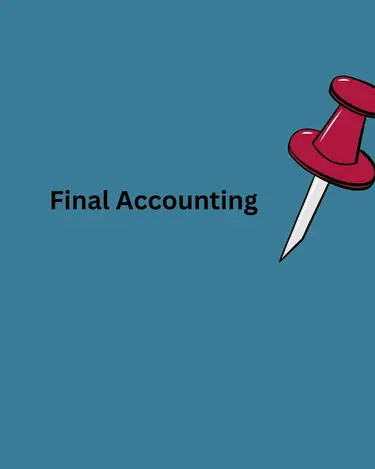
Final Accounting
$4.00
📄 What Is a Final Accounting in Probate?
A Final Accounting is a detailed financial report prepared by the personal representative (executor or administrator) at the end of the probate process. It shows the court and all interested parties exactly how the estate was handled — what was received, what was paid out, and how the remaining assets will be distributed.
📋 Purpose of the Final Accounting:
To demonstrate transparency and responsibility in the management of the estate.
To show that all debts, taxes, and expenses have been paid.
To provide a clear record before distributing the remaining assets to heirs or beneficiaries.
To get court approval for closing the estate.
✅ What’s Included in a Final Accounting?
A complete Final Accounting typically shows:
Starting value of the estate (from the Inventory of Assets)
Receipts/income: money or property added to the estate (e.g., rent, dividends, refunds)
Expenses paid:
Funeral and burial expenses
Court fees
Attorney fees
Debts and creditor claims
Taxes (income and estate)
Distributions made (if any early distributions were approved)
Proposed final distributions to heirs or beneficiaries
Supporting documentation (like bank statements, receipts, or appraisals)
Disclaimer: I am not an attorney and do not offer legal advice or legal representation. I provide non-lawyer document preparation services using public court forms, based solely on the information you gave me. If your case is contested, involves legal questions, or includes significant real estate, I will refer you to a licensed probate attorney.
Contacts
(727) 386-6040
support@pamprobatehelp.online
